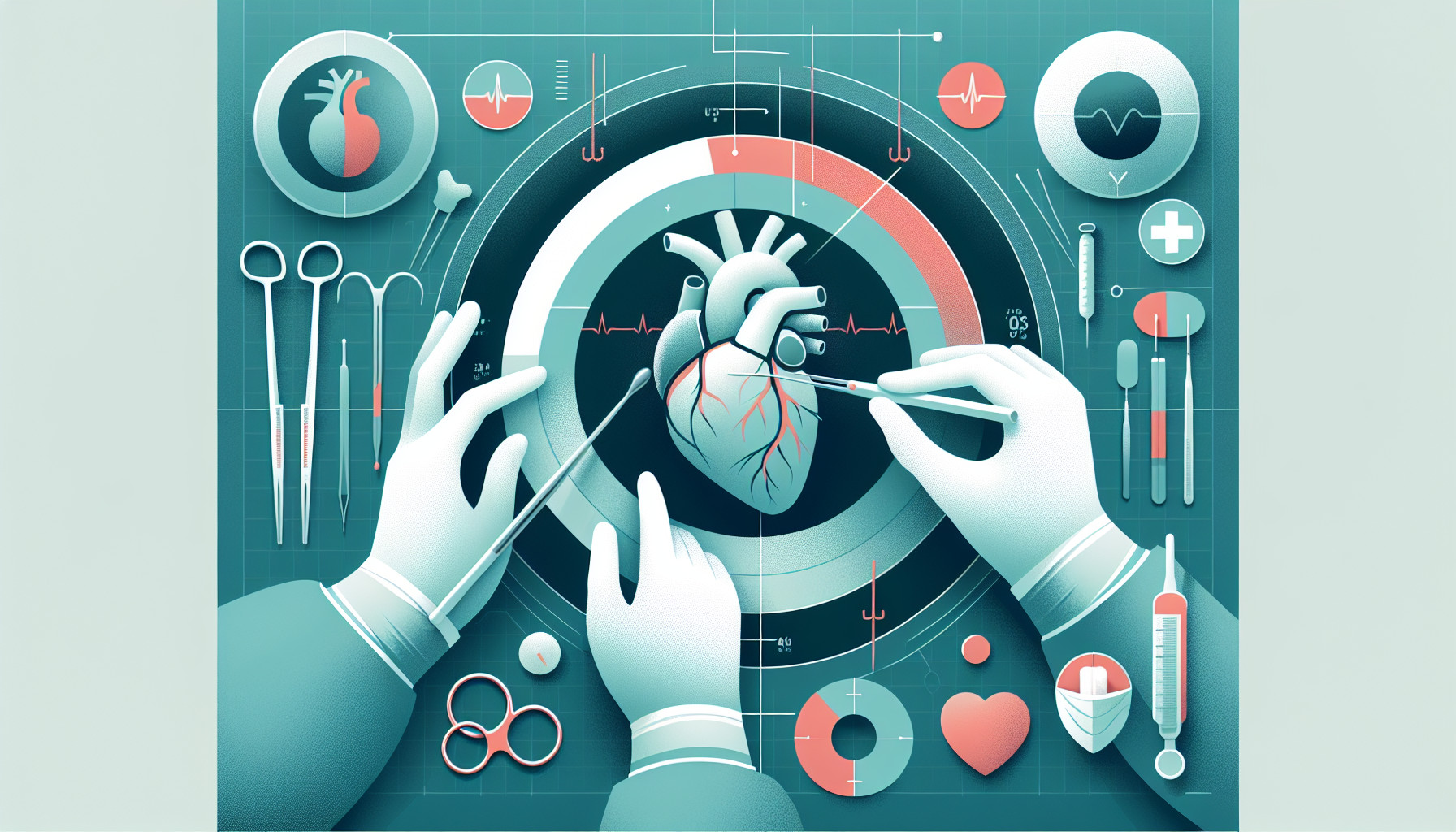Our Summary
This study tested a new way to treat atrial fibrillation (AF), a type of irregular heartbeat. They used a special catheter that can switch between two types of energy to burn or freeze the areas of the heart causing the irregular rhythm. The study used this catheter to treat 178 patients with either occasional or constant AF.
The procedure was successful in all cases, and follow-up testing showed that the treatment was still working after about a year in most cases. The effectiveness of the treatment improved as they adjusted the way they used the catheter during the study. For the last group of patients, the treatment was still working in 97% of cases after a year.
There was one case where the treatment caused inflammation around the heart, but it didn’t require any additional treatment. The study concluded that this new catheter is a safe and effective way to treat both occasional and constant AF.
FAQs
- What is the new method for treating atrial fibrillation (AF) tested in this study?
- How effective was the new treatment method in the study?
- Were there any side effects or complications reported from the cardiac ablation procedure using the new catheter?
Doctor’s Tip
A doctor might tell a patient about cardiac ablation that it is a safe and effective procedure for treating atrial fibrillation. The procedure uses a special catheter that can burn or freeze areas of the heart causing the irregular rhythm. Follow-up testing shows that the treatment is still working in most cases after about a year. In rare cases, there may be some inflammation around the heart, but it typically does not require additional treatment. It is important to follow up with your doctor regularly after the procedure to monitor your heart rhythm and overall health.
Suitable For
Patients who are typically recommended for cardiac ablation include those with atrial fibrillation (AF) that is not responding to medication, those who have frequent episodes of AF, those who have AF that is causing symptoms such as palpitations, dizziness, or shortness of breath, and those who have AF that is affecting their quality of life. In this study, patients with either occasional or constant AF were treated with cardiac ablation using a special catheter, which was found to be safe and effective in treating AF.
Timeline
Before the cardiac ablation procedure, the patient would likely have undergone various tests to diagnose their irregular heartbeat, such as an electrocardiogram (ECG) or echocardiogram. They may have also tried medications to control their symptoms without success.
During the cardiac ablation procedure, the patient would be sedated and the catheter would be inserted through a blood vessel in the groin or neck and guided to the heart. The areas of the heart causing the irregular rhythm would then be treated with either burning or freezing energy to restore normal heart rhythm.
After the cardiac ablation procedure, the patient would typically stay in the hospital for monitoring and recovery for a day or two. They may experience some discomfort or soreness at the catheter insertion site, but this should improve over time.
In the weeks and months following the procedure, the patient would have follow-up appointments with their healthcare provider to monitor their heart rhythm and overall health. They may also need to continue taking medications to prevent further irregular heartbeats.
Overall, the cardiac ablation procedure has been shown to be a safe and effective treatment for atrial fibrillation, with a high success rate in maintaining normal heart rhythm in the majority of patients.
What to Ask Your Doctor
- What is cardiac ablation and how does it work to treat atrial fibrillation (AF)?
- Am I a good candidate for cardiac ablation?
- What are the potential risks and complications associated with cardiac ablation?
- What is the success rate of cardiac ablation in treating AF?
- How long does the procedure typically take and what is the recovery time?
- Will I need to take any medications after the procedure?
- How often will I need follow-up appointments to monitor my condition post-procedure?
- Are there any lifestyle changes I should make to improve the success of the treatment?
- What are the alternative treatment options for AF if cardiac ablation is not successful?
- Can you provide me with more information on the specific type of catheter being used for the procedure and its benefits compared to other methods?
Reference
Authors: Reddy VY, Peichl P, Anter E, Rackauskas G, Petru J, Funasako M, Minami K, Koruth JS, Natale A, Jais P, Marinskis G, Aidietis A, Kautzner J, Neuzil P. Journal: JACC Clin Electrophysiol. 2023 Aug;9(8 Pt 3):1786-1801. doi: 10.1016/j.jacep.2023.04.002. Epub 2023 Apr 16. PMID: 37227340
